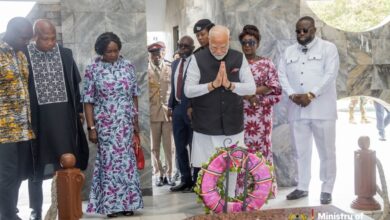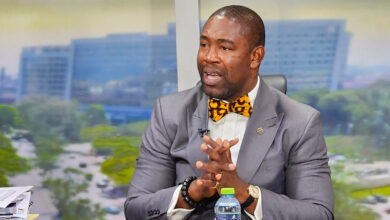Disclosing corruption for public good is justifiable

Private legal practitioner, Martin Kpebu, has clarified that disclosing state secrets, even if punishable by law, does not amount to treason under Ghana’s Constitution—particularly when the information serves the public interest.
Speaking on TV3’s New Day on Wednesday, May 14, 2025, Mr. Kpebu addressed growing debate surrounding revelations made by embattled former National Signals Bureau (NSB) boss, Kwabena Adu-Boahene, who is currently facing charges for allegedly diverting state funds into a personal account.
According to Kpebu, although the Securities and Intelligence Agencies Act (Act 1030) penalizes the unauthorized disclosure of classified information with a minimum prison term of five years, such an act does not meet the constitutional threshold for treason.
“It is certainly not Ghanaian law that it is treasonable to reveal a state secret,” he said. “When you define treason, just revealing this type of secret is not… These ones don’t qualify at all. On the face of our law, it is not treason.”
He pointed to Article 3 of the Constitution and Section 180 of the Criminal Offences Act, emphasizing that treason only pertains to attempts to overthrow the government.
The lawyer made the remarks while discussing the contents of a letter dated May 5, 2025, in which Adu-Boahene denied embezzlement allegations and detailed how certain National Security funds were allocated.
According to the letter, GHS 960,000 was disbursed to MPs on the Defence and Interior Committee as part of “Special Operations,” while GHS 5,135,000 was listed as being used for “Election Special Ops – Logistics,” to promote national stability and cohesion in December 2024.
Adu-Boahene also cited GHS 520,000 in expenditure on “Human Security Ops – Generators,” overseen by the National Security Coordinator.
Kpebu argued that while breaching secrecy laws is a criminal offense, whistleblowing in the public interest should be encouraged rather than criminalized.
“The fact that it may be an offense is no bar for Adu-Boahene to reveal. Where the public interest will be better served, yes, you can do it,” he noted.
“Where the state is misusing our money, you have a duty to protect the public purse, and any good state will not prosecute you for that.”
Adu-Boahene maintains that all referenced expenditures were legitimate and within the scope of the NSB’s Special Operations mandate.




